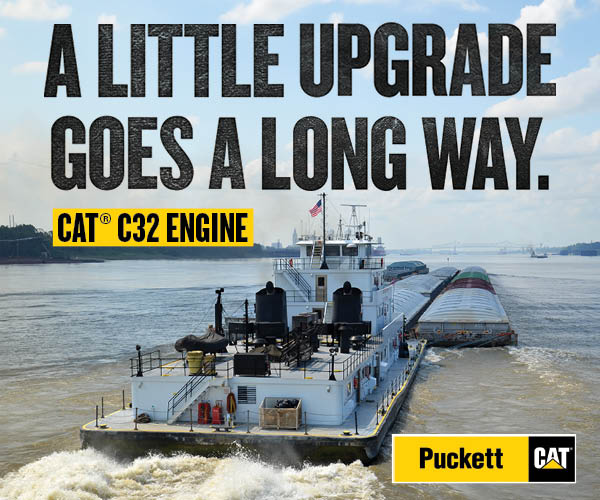Washington, D.C.—Senate Majority Leader Mitch McConnell (R-Ky.) put passage of another coronavirus rescue package at the top of his must-do legislative list for the upcoming lame duck session of Congress.
“I think that’s job one when we get back,” McConnell said of the Senate, which is scheduled to return Monday. “I think we need to do it before the end of the year.”
His comments to reporters in Kentucky echo those recently made by House Speaker Nancy Pelosi (D-Calif.), who also wants such a package passed before the new Congress convenes in January. Pelosi and McConnell have been odds for months over how much to spend and where to spend it.
Leading up to the election, Pelosi was negotiating with Treasury Secretary Steven Mnuchin on a roughly $2 trillion package while McConnell was pushing a bill with a $500 billion price tag. Another major sticking point focused on additional aid to state and local governments.
During his remarks to reporters, McConnell acknowledged such differences and expressed hope the post-election climate might be more conducive to reaching a deal.
He said an agreement already has been reached on the other big item on the lame-duck agenda, which is to fund the government. A stopgap measure to keep federal agencies funded and the government open expires December 11.
McConnell said that agreement calls for passing an omnibus appropriations bill in December.
Lame Duck Priorities
Members of the waterways industry will be tracking a number of legislative items during the lame duck session.
“We are working hard to accomplish key advocacy priorities for members before year-end,” The American Waterways Operators (AWO) stated.
Passage of the National Defense Authorization Act and its provisions to put new guardrails around unwarranted Jones Act waivers topped its list of legislative priorities.
Others on AWO’s list included:
• suspension of user fees for towing vessels using the TSMS option;
• creation of an emergency relief grant program for maritime businesses.
• statutory clarification to ensure the emerging offshore wind energy market is reserved for American companies, vessels and mariners;
• inclusion of liability protection for COVID claims in any year-end pandemic relief bill.
• passage of a Water Resources Development Act that changes the cost-share for inland navigation projects and expands a pilot program to expedite dredging after high- and low-water events;
• publication of practical Coast Guard policy that facilitates Subchapter M compliance and ensures a level playing field on issues like engineroom manning reductions, hull maintenance and repair standards; and
• priority access for mariners when a COVID-19 vaccine becomes available.
Users Board Nominations
The U.S. Army Corps of Engineers is requesting nominations for five appointments on the Inland Waterways Users Board. Nominations must be received by December 1.
With its 11 representative organizations appointed by the secretary of the Army, the board is an independent federal advisory committee.
Appointments sought with this announcement will begin by May 28. For additional information, contact Mark Pointon at 703-428-6438 or visit the website at http://www.iwr.usace.army.mil/Missions/Navigation/InlandWaterways-UsersBoard/.
Upper Miss Funding
Responding to a bipartisan, bicameral push to fund Upper Mississippi River projects, the U.S. Army Corps of Engineers said it could not comment or speculate on what will end up in the fiscal year 2021 Civil Works work plan before it has been developed and presented to Congress.
”USACE recognizes the tremendous economic and environmental importance of the Upper Mississippi River and the Mississippi River system as a whole to the nation,” the agency said in a statement.
In a letter to R.D. James, assistant secretary of the Army for Civil Works, and Lt. Gen. Scott Spellmon, chief of engineers and commanding general of the Corps, more than 50 members of Congress called on the agency to fund Upper Mississippi water infrastructure projects.
Their letter warned the current backlog of projects was putting at risk the critical role the nation’s water infrastructure plays in maintaining its competitiveness in the global economy.
Aquatic Nuisance Species Task Force
The U.S. Fish and Wildlife Service announced the Aquatic Nuisance Species (ANS) Task Force will hold a teleconference/web meeting December 8–10. Registration is required by December 7 for the sessions, which begin at noon.
Established by a 1990 law, the ANS Task Force’s main purpose is to develop and implement a program to prevent introduction and dispersal of aquatic invasive species, to monitor, control and study such species and disseminate related information.
For additional information on registration and to receive the telephone number and web address for participation, contact Susan Pasko at 703-358-2466 or visit the website at https://anstaskforce.gov.
Commercial Diving Standards
The Coast Guard announced availability of a policy letter providing guidance on acceptance of certain industry-recognized standards for commercial diving operations providing a level of safety equivalent to requirements in regulations.
Applicable October 28, CG–OES Policy Letter 02–20, Commercial Diving Operations—Equivalent Levels of Safety, is available at https://www.uscg.mil/guidance.
For additional information, contact Ken Smith at 202-372-1413.
Incidental Discharges Comments
The U.S. Environmental Protection Agency (EPA) has set a November 25 deadline for public comments on its previously announced proposal to establish national standards on incidental discharges from commercial vessels.
That deadline was set with the publication of the proposed rule in the Federal Register.
For additional information, contact Jack Faulk at 202-564-0768.
Lakes Pilotage Increase
The Coast Guard is proposing a 4 percent net increase in the Great Lakes base pilotage rates for the 2021 shipping season, a change in its ratemaking methodology to account for actual inflation and two policy changes.
One change would be to always round up numbers in the staffing model as opposed to rounding to the nearest whole integer, and the second would be to exclude fees incurred in litigation against the Coast Guard regarding ratemaking from necessary and reasonable pilot association operating expenses.
Comments also are being requested on how apprentice pilots (mariners with a limited registration) should be compensated in future rulemakings.
A November 27 deadline was set for comments.
For additional information, contact Brian Rogers at 202-372-1535.




